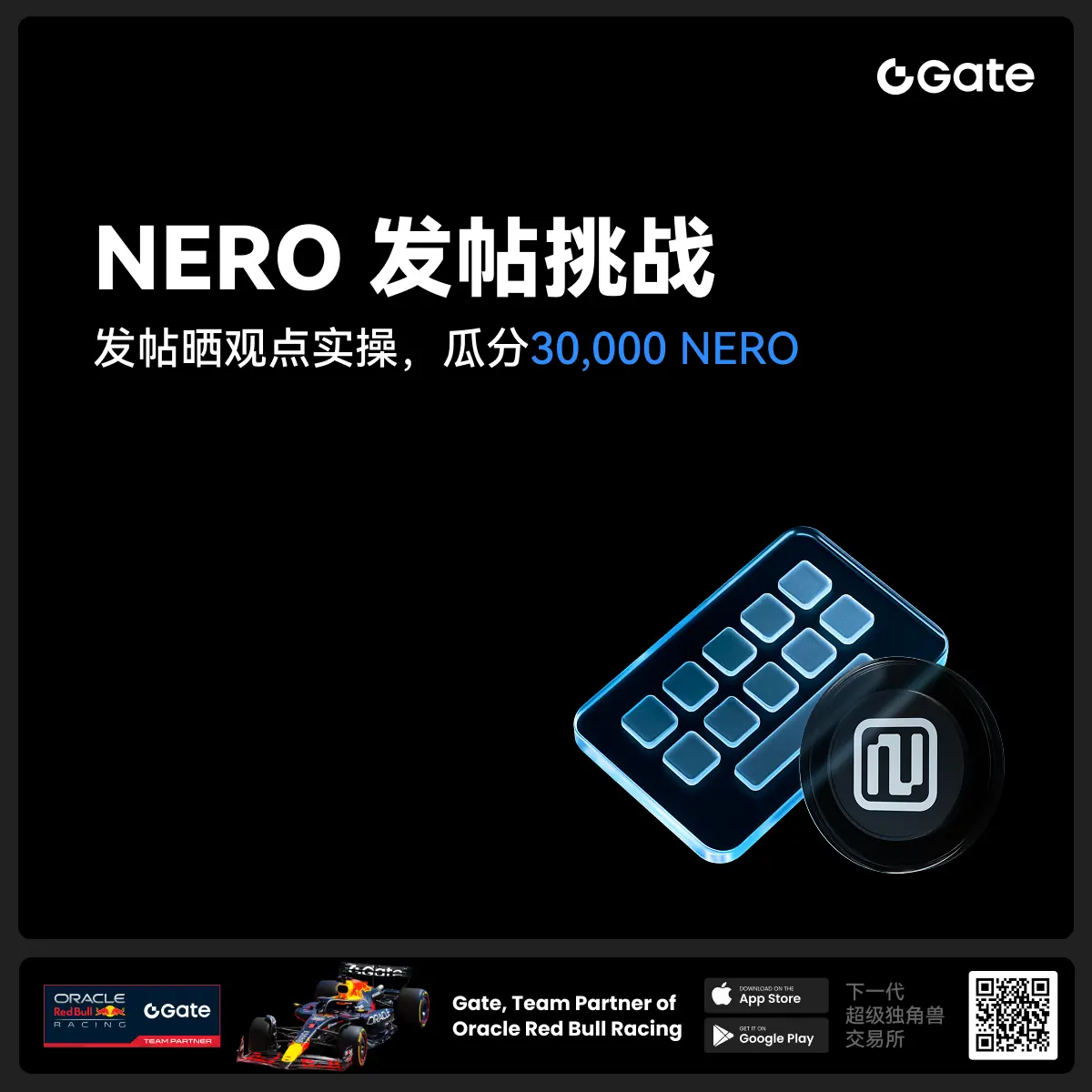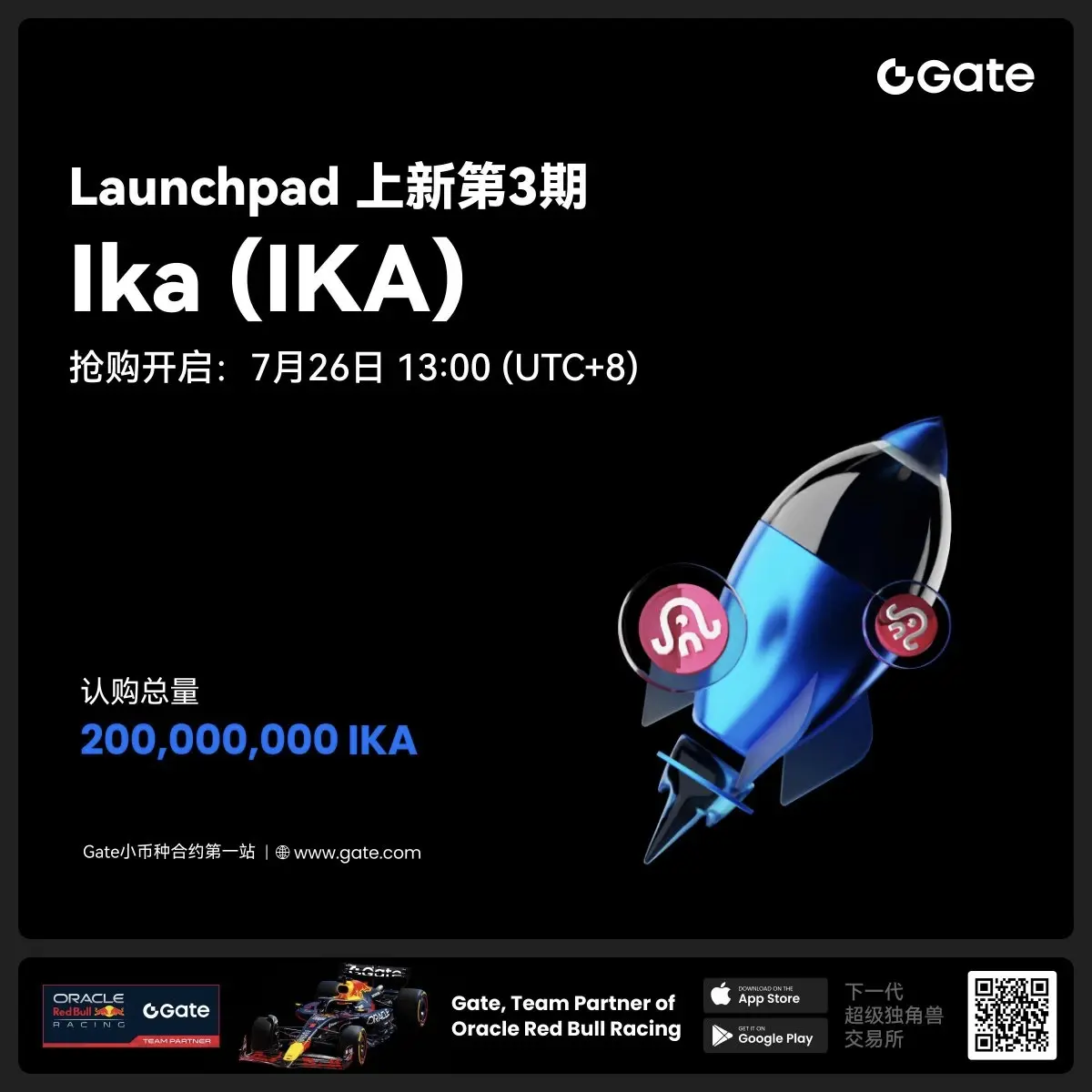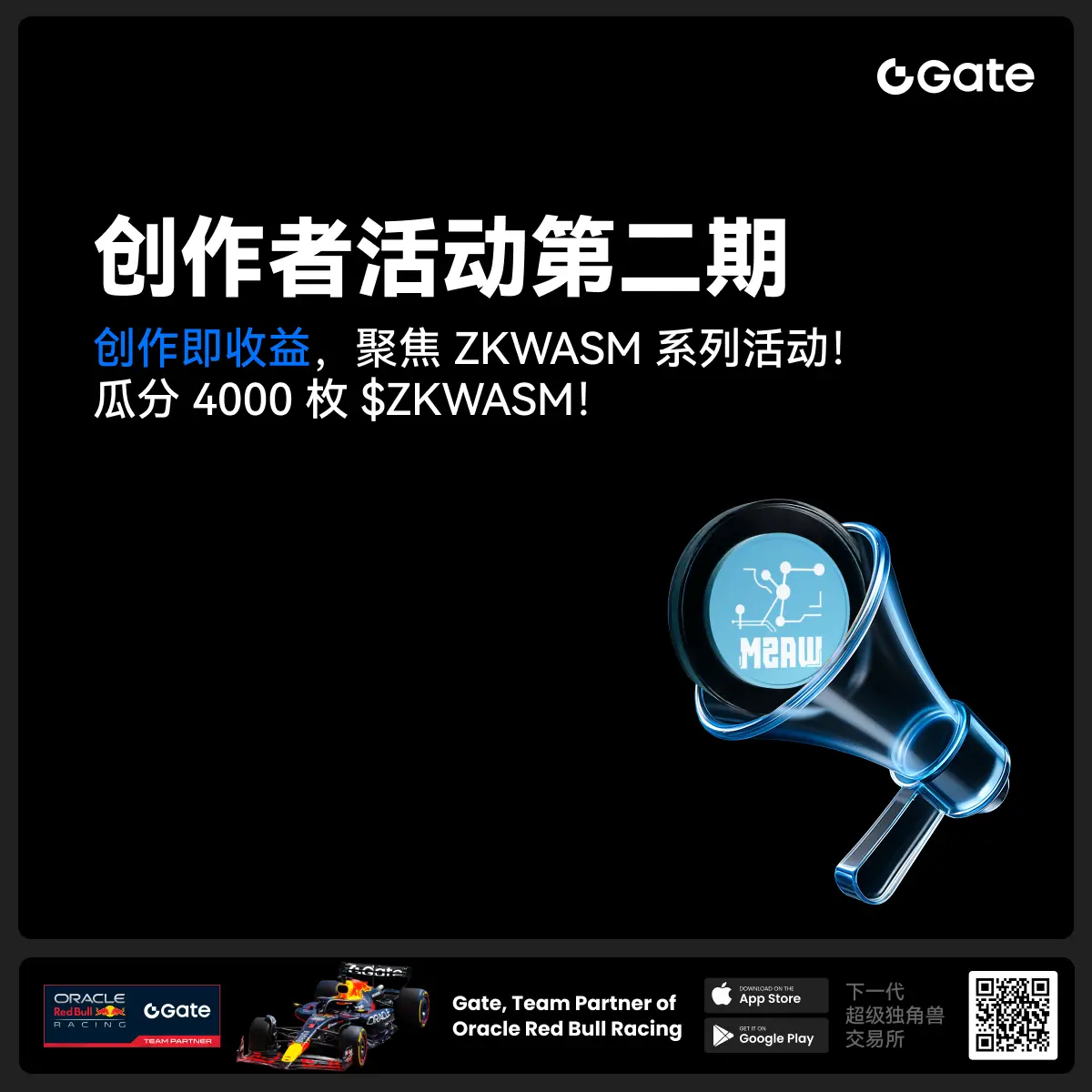- 话题1/3
4381 热度
52740 热度
6670 热度
18410 热度
673 热度
- 置顶
- 📢 Gate广场 #NERO发帖挑战# 秀观点赢大奖活动火热开启!
Gate NERO生态周来袭!发帖秀出NERO项目洞察和活动实用攻略,瓜分30,000NERO!
💰️ 15位优质发帖用户 * 2,000枚NERO每人
如何参与:
1️⃣ 调研NERO项目
对NERO的基本面、社区治理、发展目标、代币经济模型等方面进行研究,分享你对项目的深度研究。
2️⃣ 参与并分享真实体验
参与NERO生态周相关活动,并晒出你的参与截图、收益图或实用教程。可以是收益展示、简明易懂的新手攻略、小窍门,也可以是行情点位分析,内容详实优先。
3️⃣ 鼓励带新互动
如果你的帖子吸引到他人参与活动,或者有好友评论“已参与/已交易”,将大幅提升你的获奖概率!
NERO热门活动(帖文需附以下活动链接):
NERO Chain (NERO) 生态周:Gate 已上线 NERO 现货交易,为回馈平台用户,HODLer Airdrop、Launchpool、CandyDrop、余币宝已上线 NERO,邀您体验。参与攻略见公告:https://www.gate.com/announcements/article/46284
高质量帖子Tips:
教程越详细、图片越直观、互动量越高,获奖几率越大!
市场见解独到、真实参与经历、有带新互动者,评选将优先考虑。
帖子需原创,字数不少于250字,且需获得至少3条有效互动
- 🎉 亲爱的广场小伙伴们,福利不停,精彩不断!目前广场上这些热门发帖赢奖活动火热进行中,发帖越多,奖励越多,快来GET你的专属好礼吧!🚀
1️⃣ #GateLaunchpad上线IKA# |IKA认购体验
在Gate广场带话题晒出你的IKA Launchpad认购体验,4位幸运分享者讲瓜分$200分享奖池!
详情 👉️ https://www.gate.com/post/status/12566958
2️⃣ #ETH冲击4800# |行情分析预测
大胆发帖预测ETH走势,展示你的市场洞察力!10位幸运用户将平分0.1 ETH 奖励!
详情 👉️ https://www.gate.com/post/status/12322403
3️⃣ #创作者活动第二期# |ZKWASM话题
在广场或推特发布与 ZKWASM 或其交易活动相关的原创内容,瓜分4,000枚ZKWASM!
详情 👉️ https://www.gate.com/post/status/12525794
4️⃣ #Gate广场征文活动第二期# |ERA话题
谈谈你对ERA的观点/体验,参与并推广活动,700 ERA大奖等你赢!
详情 👉️ https://www.gate.com/post/status/12361653
5️⃣ #MBG任务挑战# |MBG话题
分享你对MBG的洞察,积极参与和推广MBG活动,20位小 - 亲爱的广场用户们, #Gate 2025年中社区盛典# 投票中!🔥
🙌 广场内容达人TOP40榜单新鲜出炉!速速围观榜单,为你喜爱的达人疯狂打call吧:
www.gate.com/activities/community-vote
每天完成【广场】互动任务可获得助力值,每投出30助力值即可参与抽奖一次!
iPhone 16 Pro Max 512G、金牛雕塑、潮流运动套装、合约体验券、热门币种等你抽!
助力越多,中奖机率越大,下一个抱走iPhone 16的锦鲤就是你!🧧
别犹豫,带上你的“欧气”,为达人冲榜赢大奖!
https://www.gate.com/announcements/article/45974
- 🎉 Gate 广场 IKA Launchpad 发帖活动来袭!🎉
Gate Launchpad 认购 IKA 最后24小时!晒出你的认购体验,和大家一起分享,每个人都有机会瓜分 $200 奖池!
🎁 4位幸运分享者*$50合约体验券每人!
🧐 如何参与:
1.在广场发帖,带上 #GateLaunchpad上线IKA# 标签
2.晒出你的认购截图 或 分享你的独特认购小窍门/心得或趣事
3.保证帖子大于50字,内容有趣有料,原创,集齐至少3个互动(点赞/评论/转发)
IKA认购链接:https://www.gate.com/launchpad/2336?downgarde=true
活动时间:7月28日 12:00 - 7月30日 24:00 (UTC+8)
赶快加入,分享你的精彩时刻,你就是下一个幸运儿!
- 📢 Gate广场 #创作者活动第二期# 正式开启!
聚焦 ZKWASM 系列活动,分享你的观点,瓜分 4,000 枚 $ZKWASM!
ZKWASM 作为 zk 公链先锋,正在 Gate 平台重磅推广!
三大活动联动上线:Launchpool 认购、CandyDrop 空投、Alpha 专属交易——不要错过!
🎨 活动一:发布广场贴文,赢内容奖励
📅 时间:7月25日 22:00 - 7月29日 22:00(UTC+8)
📌 参与方式:
- 在 Gate 广场发布与 ZKWASM 或其三大活动相关的原创内容(不少于 100 字)
- 添加标签: #创作者活动第二期# #ZKWASM#
- 附本人参与 Launchpool/CandyDrop/Alpha 的截图(如认购、空投或交易)
🏆 奖励设置:
- 一等奖(1名):1000 枚 $ZKWASM
- 二等奖(2名):500 枚 $ZKWASM
- 三等奖(10名):100 枚 $ZKWASM
📋 评选标准:内容质量、互动量、项目相关性,附活动参与截图者优先。
📢 活动二:发推赢传播力奖励
📌 参与方式:
- 在 X(推特)发布与 ZKWASM 或三大活动相关的原创内容(不少于 100 字)
- 添加标签: #ZKWASM # GateSquare
- 填写登记表 👉 https://www.gate.com/quest
Walrus:Sui生态的去中心化存储新势力
Sui生态迎来去中心化存储新方案Walrus
去中心化存储网络Arweave通过推出计算层AO,成功实现了币价、生态和热度的回流。而作为通用计算链的Sui,推出去中心化存储网络Walrus,有望在存储领域掀起新的浪潮。
背景介绍
团队
Walrus是Mysten Labs旗下最新的去中心化存储网络产品。Mysten Labs的多数创始人和员工来自Meta(原Facebook)已解散的区块链项目Diem。Walrus的名称源自"海象",寓意存储系统的可靠性和适应能力。
与Sui的关系
Walrus基于Sui构建,利用Sui协调存储空间和元数据销售。然而,使用Walrus并不要求在Sui上开发应用。Walrus将推出独立的治理代币WAL,作为功能型代币。
竞品分析
去中心化存储协议主要分为两类:
完全复制系统:代表有某些知名存储项目。优点是存储节点上有完整文件,即使部分节点下线也能访问文件。缺点是存储开销大,且可能受女巫攻击。
Reed-Solomon(RS)编码系统:将文件分割成小块存储。优点是存储效率高,缺点是编解码计算复杂,限制了文件大小和参与节点数量。
存储面临的挑战
现有去中心化存储系统面临两大挑战:
核心创新
Walrus采用创新的纠删编码技术,能快速将数据编码成小分片并分布存储。即使丢失大部分分片,也能快速重构原始数据。这种方法将复制因子控制在4-5倍,与现有云服务相当,同时具备去中心化和更强的故障容错能力。
Walrus推出了名为RedStuff的全新2D编码算法,专为拜占庭容错设计。RedStuff基于喷泉码,结合了快速操作和高可靠性。它通过简单的XOR操作将数据编码为主次切片,分布在存储节点中。
RedStuff的主要优势包括:
Walrus还配备了高效的委员会重配置协议,确保数据持续可用。引入了异步挑战协议验证节点存储,其成本随文件数量呈对数扩展。
经济模型基于质押,结合奖励和惩罚机制。创新的存储认证机制降低了证明文件存储的成本。
总之,Walrus提供了一个可扩展、高弹性且经济可行的去中心化存储解决方案。Sui作为控制层为Walrus提供了强大支持。
潜在空投
Walrus将推出独立代币WAL,用于质押、治理等。获取WAL的可能方式之一是持有SUI代币。
Walrus即将推出测试网,主网上线时间待定。目前可查阅官方文档了解如何使用Walrus部署网站。